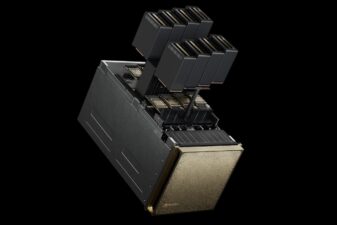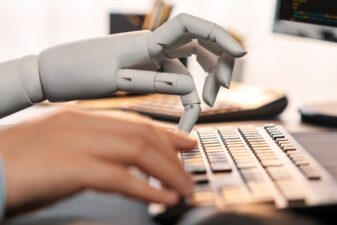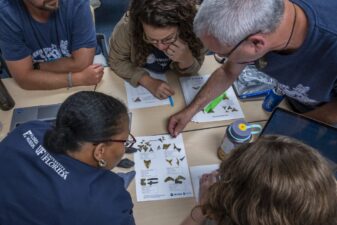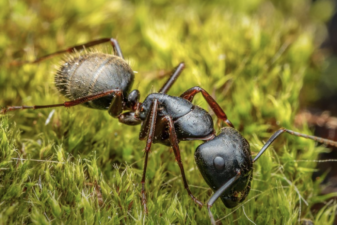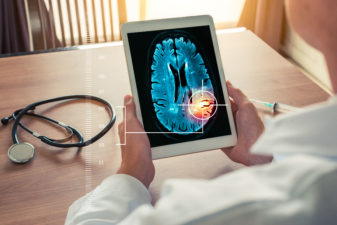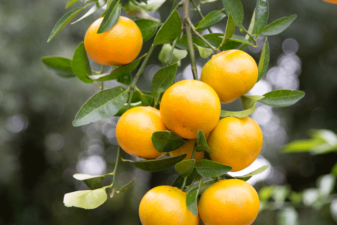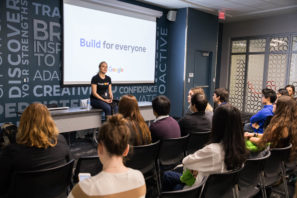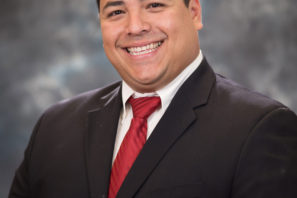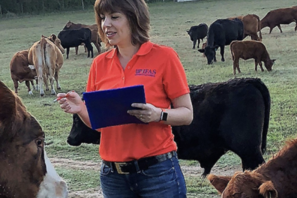The University of Florida Board of Trustees today approved investing $24 million to acquire a more advanced version of UF’s...
The patient arrived with a bladder stone, grimacing in pain and moping about. He wouldn’t even chew his cud. The...
The University of Florida has selected 20 research projects in artificial intelligence for accelerated development using the university’s HiPerGator supercomputer....
Stories written by the latest version of ChatGPT were nearly as good as those written by human authors, according to...
Sharks, on their own, are fascinating enough for Florida students in kindergarten through 12th grade. Add artificial intelligence to the...
Alina Zare, one of the University of Florida’s leading artificial intelligence researchers, has been named director of the university’s Interdisciplinary...
E.O. Wilson once referred to invertebrates as “the little things that run the world,” without whom “the human species [wouldn’t]...
High-impact research is in full swing on the University of Florida’s powerful supercomputer, with faculty and students from across the...
As news broke that Florida’s citrus industry ended this year’s growing season with its lowest production in eight decades, an...
Career experts at the University of Florida Career Connections Center are partnering with companies to identify how they’re using artificial intelligence, or AI, to ensure students have the skills they need to land a job of their choice after they graduate.
Diego Alvarado believes it’s vital that society understands the role artificial intelligence plays in everything we do.
“Everybody is calling it the new electricity,” said Alvarado, an instructional assistant professor at the Herbert Wertheim College of Engineering at the University of Florida. “It’s under the hood of almost everything. We need to be able to understand it.”
For a century, researchers have tracked genetic traits to find out which cattle produce more and better milk and meat. Now, two University of Florida scientists will use artificial intelligence to analyze millions of bits of genetic data to try to keep cattle cooler and thus, more productive.

